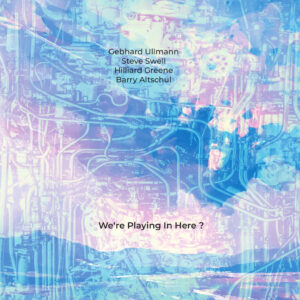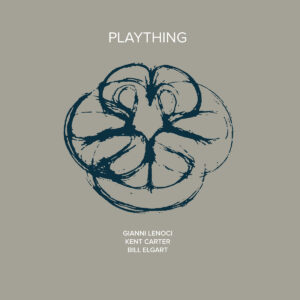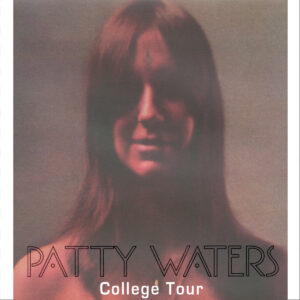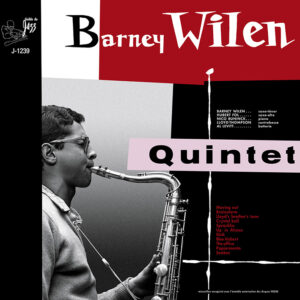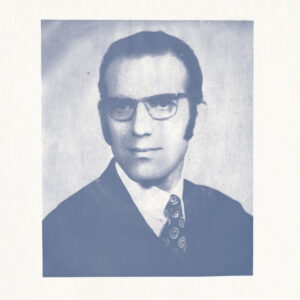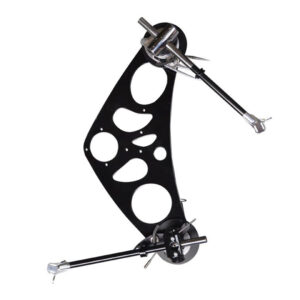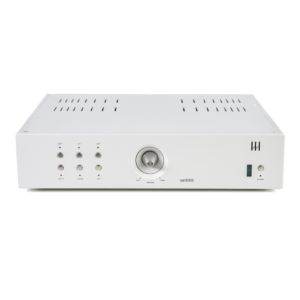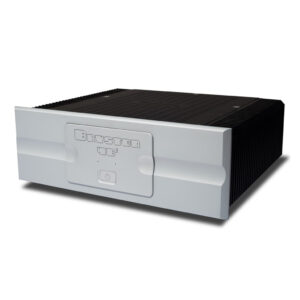Free jazz and improvised music have a small but very dedicated audience around the world. NoBusiness records was founded in 2008. With more than a hundred releases to date, has become established in the world of this non-commercial genre. Co-founder Danas Mikailionis expressed his passion and dedication to this exciting musical world, in a conversation with Eligo Audio Culture. A very modest record label that, in most of their releases, succeeds in bringing the musicians “Live” in your listening room with top quality sound recordings.
Briefly tell us a few words about your musical background.
All my musical education comes from very active listening to different kinds of music since I was a teenager. Most of the music was not available during the Soviet Union time. The music was smuggled to Soviet Union and then shared between the owners of the illegal studios belonging to the same chain. Then, by the way of making copies on reel-to-reel tapes and cassettes it reached the consumers. That was all completely illegal. I was happy to work for some years for one of the studios. So, I had a great chance to listen to all old and new music. That was my education. Constant search for new forms has led me to free jazz and improvised music.
Was there any Jazz culture in the Soviet Union era?
I was not lucky to listen to the jazz music played in Lithuania during the Soviet era. I had yet to discover jazz for myself. There were very few groups playing free or improvised jazz back then. Those activities were not encouraged by the regime. Nevertheless, it was happening. The best example could be the influential Ganelin / Chekasin / Tarasov trio that played back then and even had a chance to be released by Soviet Melodya record label. The regime would reluctantly agree to throw these cultural bones to the people just to demonstrate its „openness“ to new cultural forms. But still most of their music had to be smuggled to the UK to be released on LEO Records. This music though had a very deep impact on the musicians and listeners of both old and new generations. Even after 40 years it still sounds fresh and exciting.
Did the jazz culture and discography in Poland had any impact in Lithuania and the rest of the Soviet Union? Were you aware of the jazz scene and discography of countries like Yugoslavia?
Yes, absolutely. Countries from the so-called Soviet Block, which were not a part of the Soviet Union, were more liberal and such labels as Polljazz (Poland) and Suprafon (Chekoslovakia) released quite a lot of free jazz back then and their vinyls could be rather easily brought to Soviet Union by the tourists coming back from those countries. So, it was another important musical source for the jazz lovers. And they were widely listened to by the musicians and jazz lovers. Several people were known as jazz collectors and organized special evenings when people would come to a certain place and had a chance to sit together and listen to a vinyl. Then to discuss the music that they‘ve just listened. Those people were aware of the different discographies from different countries. But these discographies were unknown to the rest of music lovers.
Which year did you start the label? Tell us a few words about the collaboration with Thelonious record shop.
After the separation from the Soviet Union all the cultural gates were opened. Record shops started opening and everyone was able to order any music he wanted. Little music exchange markets were another possibility to find the music. It was one of those markets where I met the owner of the Thelonious record shop, and we became very good friends. Income from the record shop activities allowed him to start inviting foreign jazz groups to come to Vilnius and that’s how the whole movement toward the founding of the jazz label started. By 2008 we already had enough musical material to start the label, which was always our great wish. The successful beginning of the label was due to a broad resonance of our first releases, and it stimulated the continuation with the label’s activities.
The incredible catalog of NoBusiness has many artists and recordings from different countries around the world, many of them from USA and Japan. Are you focusing on these two countries or you had just more offers from artist from there?
After the first releases we started receiving proposals from all around the world. We were never focused on a particular country. Everything depended on the music. With a limited financial resource, we are only stuck to the sessions that really applied to us. It didn’t matter whether it was a well-known group or not. The most important thing was the energy that we felt in the music. And we always followed our internal feeling.
How did the collaboration with Chap Chap records begin? Do you reckon Japan as the “Mecca” for free/impro music?
Japan was always a very important country for free/impro music, and it had a huge impact on western musicians. The only issue was that the music stayed well known and listened to, mostly inside Japan. And an ordinary western listener knew quite little about it, except for the European labels that put out collaborative recordings of western and Japanese musicians. So, the main idea was to promote Japanese and Korean free/impro music and make it available for the listeners around the World as much as possible. Our friends from Japan Takeo Suetomi and Kenny Inaoka came up with a proposal to start Chap-Chap series and release music that Takeo produced in Japan during a series of concerts for a couple of decades. Now it’s the seventh year that we continue with the series, and it received a very big resonance among the jazz listeners and great feedback from them.
I noticed that most of the releases of Lithuanian artists are sold out. Do they sell easier in the local market?
Lithuanian market for this music is very small and we only sell our releases to a couple of dozens of jazz fans here. Lithuanian musicians that we release are well known outside Lithuania and this is the reason that some recordings are sold out. Not the local market.
Are they any new record shops in Lithuania?
I noticed that new record shops started popping up a couple of years ago. People started buying LPs more and more and they make quite good money. Still, free and impro music remains mainly for the devoted fans here. Although the number of young musicians playing this music increases every year here and I am very hopeful that audience will grow.
You release both CDs and LPs, which format sells more? Is there any difference between the two formats in the recent years?
There is a clear tendency in buying more LPs than CDs. Many people who used to buy CDs have switched to digital downloads. People buy LPs because of the aesthetic pleasure that the whole process of listening to them provides. Many claim to enjoy the vinyl sound more than the sound from a CD. This is what I got from our meetings and discussions or email exchanges with vinyl fans.
Do you think free/impro music has changed through the years? Do you see any progress? If yes, in which way?
Free/impro music has undergone many transformations during decades. Starting with brave initial attempts at late 60s and continuing with different approaches and forms later, this music is in constant search of new horizons. Now and then it continues surprising.
In a recent interview about your latest release “Sam Rivers – Archive Series” you mention your interest in Loft Era in NYC. Were you also interested in the political aspects of these movements and does this reflect on your releases?
I was always interested and supported human rights movements. Read many books, articles, watched documentaries and interviews. Loft Era had a very strong message expressed though the music and poetry. It had a great influence on the community and musicians. Many great musicians were a part of it and started their musical journey back then. Some of my deepest emotions were closely related to the Loft movement music. It was one of the finest examples of creativity and expression of inner urge that was born from the overwhelming feeling and the goal of the Jazz Loft movement. Each earlier unheard session becomes a new discovery and brings a great joy. I will continue releasing the music from that period as much as I can.
Some of your releases include recordings that have been offered by the artists in a final state, almost ready to be released. But, you are also taking care of new productions. Which is more exciting?
It’s very exciting to be a part of new projects. Collect musicians together and hear a new music born. Unfortunately, it is not possible to do it often because of the lack of funds. In the end, the most important thing is the music, and it is not that important if you are not a part of the whole creation process.
I have read in older interviews that you are actively involved with organising live shows and Jazz festivals in Lithuania. Are there any new venues lately and do you think that the audience for this music is growing?
I try to help festival organisers here in Vilnius as much as I can. Mostly, my interest lay in a growing generation of young jazz musicians. I am a part of the organization of showcase stage performances. Help them to get gigs in other jazz festivals or clubs abroad. There are quite some new venues in Vilnius for them where they can build their audiences and make them develop their musical ideas. And yes, I am happy to say that the audience is growing each year.
Most of your releases have incredible sound quality, how important do you think it is for this type of music?
The sound quality is important. For this music you must hear each aspect of the sound to have a full impression of listening to it. So, we work on the sound very thoroughly. It’s a bit different with the archive sessions. In many cases you have a quite limited quality of the sound because of the initial recording source. It may be cassettes, reel-to-reel tapes, or just not very successful digital transfers from them. Then we use all the available magic tools to improve it. Still, a poorer quality on the final sound result, it is a very exciting listening experience and important musical heritage.
Our website’s catalogue includes three High-End brands from Lithuania at the moment. It seems there is an audio culture growing in the country. Is that so and how does this help jazz culture expand?
I know little about it. Just know that some audiophiles here acquired the necessary equipment for pressing high quality vinyls and opened the plant.
Are you satisfied so far with the release of the Sam Rivers box set?
I can’t be more satisfied. I wanted to complete this box set for many years. And now it became a reality. It is out and became a part of the history. Great feedback from the listeners is the best reward for all the hard work.
Would you like to share any of the near future projects? What is going to be the next release?
I would like to continue working on the historic releases from the 70s-80s. There is plenty to be discovered from those times and my next releases will consist of earlier unreleased session from 1978 by Barry Altschul-David Izenson-Perry Robunson and the earliest available session from 1985 by Pyramid Trio (Roy Campbell Jr.-William Parker-Rashid Bakr). Also there will be a very exiting session from 1978 by Jouk Minor group and a couple of Chap-Chap series releases – Peter Brotzmann-Sabu Toyozumi (1987) and Kim Dae Hwan-Choi Sun Bae duo (1999).
Explore NoBusiness catalog here: https://eligoaudioculture.com/label/no-business-records/



